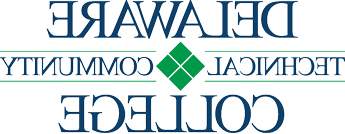Medical Laboratory Technician
Associate Degree Program
The Medical Laboratory Technician associate degree program is a nationally accredited program that prepares the student who wishes to seek employment as a medical laboratory technician. Medical laboratory technicians perform routine laboratory procedures on blood, tissue, and other bodily fluids. As a medical laboratory technician, you will work under a medical laboratory scientist to report lab results to medical personnel, focus on blood banking, hematology, immunology, or microbiology. After graduation, you will be prepared to work in a laboratory setting and can be employed as a technician in research centers, pharmaceutical laboratories or biomedical laboratories, or as a quality control technician in food processing or manufacturing companies.
Upon successful completion of this program, you will be eligible to sit for the American Society for Clinical Pathology (ASCP) registry exam for Medical Laboratory Technicians.
Offered at the following campus(es): Georgetown
What You Can Do
In this program, you will gain the knowledge and skills to prepare you for positions such as:
- Hospitals
- Research Centers
- Biomedical laboratories
- Commercial labs
- Food processing companies
- Manufacturing companies
- Clinics
- Public health facilities
- Pharmaceutical Industry
What You Will Learn
Program Graduate Competencies
The Program Graduate Competencies listed below identify the major learning goals related to your specific program of study and identify the knowledge and skills you will have when you graduate to be successful in your chosen field.
- Collect, process, and analyze biological specimens and other related substances.
- Recognize factors that affect procedures and results, and take appropriate actions within predetermined limits when corrections are indicated.
- Perform and monitor quality control within predetermined limits.
- Apply basic scientific principles for application in medical laboratory procedures and methodologies.
- Employ safety principles according to health and environmental regulations.
- Correlate laboratory results with common disease processes and treatments for diagnosis.
- Demonstrate professional conduct and interpersonal communication skills with patients, laboratory personnel, other healthcare personnel, and the public.
Core Curriculum Competencies
The Core Curriculum Competencies listed below identify what you will be able to do as a graduate, regardless of your program of study. You will acquire these core competencies through general education courses and program-specific coursework. You will be expected to use relevant technology to achieve these outcomes:
- Apply clear and effective communication skills.
- Use critical thinking to solve problems.
- Collaborate to achieve a common goal.
- Demonstrate professional and ethical conduct.
- Use information literacy for effective vocational and/or academic research.
- Apply quantitative reasoning and/or scientific inquiry to solve practical problems.
Suggested Pathway to Graduation
Semester 1
| Number | Course Title | Credits |
|---|---|---|
| SSC 100 | First Year Seminar | 1 |
| BIO 120 | Anatomy and Physiology I | 5 |
| CHM 150 | Chemical Principles I | 5 |
| Or | ||
| CHM 110 | General Chemistry | 4 |
| MAT 162 | Statistical Reasoning | 4 |
| MLT 120 | Hematology I | 4 |
Semester 2
| Number | Course Title | Credits |
|---|---|---|
| BIO 121 | Anatomy and Physiology II | 5 |
| CHM 151 | Chemical Principles II | 5 |
| Or | ||
| CHM 111 | Introduction to Organic and Biochemistry | 4 |
| ENG 101 | Composition I | 3 |
| MLT 121 | Hematology II | 4 |
Semester 3
| Number | Course Title | Credits |
|---|---|---|
| MLT 250 | Clinical Microbiology I | 4 |
| MLT 220 | Clinical Chemistry I | 4 |
| ENG 102 | Composition II | 3 |
| MLT 260 | Immunology | 4 |
| PSY 121 | General Psychology | 3 |
Semester 4
| Number | Course Title | Credits |
|---|---|---|
| MLT 221 | Clinical Chemistry II | 4 |
| MLT 251 | Clinical Microbiology II | 4 |
| MLT 261 | Blood Banking | 4 |
| SOC 213 | Ethical Issues in Healthcare | 3 |
Semester 5
| Number | Course Title | Credits |
|---|---|---|
| MLT 291 | Clinical Practicum | 7 |
To complete program requirements, you must pass the above courses and earn at least 73 credits. The number of courses and credits required for graduation may be more depending on college readiness and the elective courses offered in your program major (if electives are a part of the program).
AHTAASMLT
Pursuing a Bachelor's Degree?
This is a Connected Degree program that enables you to complete your associate degree and then transfer to a four-year degree program as a junior. See a program advisor for details!
This program is offered at the Georgetown campus.
Linda Collins
Department Chair and Program Director
lcollins@cctv1718.com
(302) 259-6610
The medical laboratory program consists of four semesters of on-campus instruction followed by a one-semester clinical practicum in an affiliated hospital laboratory. The program is fully accredited by the National Accrediting Agency for Clinical Laboratory Sciences (NAACLS)* which qualifies the graduates to take the ASCP certification examination for Medical Laboratory Technicians. Students are required to complete the program within five calendar years.
The Medical Laboratory Technician Program of Delaware Technical Community College in Georgetown, DE, was awarded Continuing Accreditation for ten (10) years as of October 31, 2019.
*NAACLS
National Accrediting Agency for Clinical Laboratory Sciences
5600 N. River Rd. Suite 720
Rosemont, IL 60018-5119
(847) 939-3597
(773) 714-8880
(773) 714-8886 (FAX)
www.naacls.org
This program is offered at the Georgetown campus.
This program is offered at the Georgetown campus.

